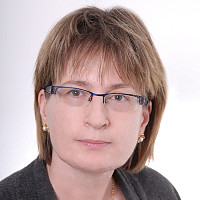Course title:
Contemporary phonological theories
Course code: PSL222
Course status: Elective
Course leader: Višnja Josipović Smojver
Course instructor:
Language of instruction: English
Total hours: 8S
Form of instruction: Lecture
ECTS credits: 4
Course content by topics:
- An overview of the development of phonological theories; 2.Structuralism in phonology; 3.Generative phonology: an overview; 4. Derivational phonology (linear and nonlinear); 5. Non- derivational phonology: optimality theory; 6. Theories and models within the geometry of phonological features; 7. Suprasegmental phonology; 8. Variants of optimality theory: new insights and challenges
Learning outcomes at course level:
- To compare prominent models relying on the adequate theoretical framework and to select the most appropriate model with regard to the student’s area of interest and explain the reasons for this choice; 2. To demonstrate how the use of contemporary phonological approaches in the description and analysis of the observed pronunciation phenomena facilitates insights into universal phonological laws, applicable to other languages; 3. To compare pronunciation phenomena in various languages and point out to universal phonological laws underlying superficial phonetic variability of pronunciation and differences between languages.; 4. To write a research paper presenting an analysis of a certain pronunciation phenomenon relying on one of contemporary theoretical approaches.
Learning outcomes at programme level:
| IU1 | IU2 | IU3 | IU4 | IU5 | IU6 | IU7 | IU8 |
| x | x | x | x |
Reading list:
Gussenhoven, C. i H. Jakobs (2005). Understanding Phonology. London: Arnold.; Gussman, E. (2002). Phonology: Analysis and Theory. Cambridge: Cambridge University Press.; Josipović Smojver, V. (2017). Suvremene fonološke teorije. Ibis grafika.; Kager, R. (1999). Optimality Theory. Cambridge: Cambridge University Press.; McCarthy, J. J.(2002). A Thematic Guide to
Optimality Theory. Cambridge: Cambridge University Press.; McCarthy (2008). Doing Optimality Theory: Applying Theory to Data. Blackwell.; and additional literature depending on the doctoral students’ individual interests and orientations; includes papers in linguistic journals and internet archives
Assessment of student achievement: oral exam; the seminar attendants with a degree in English submit a seminar paper on the topic arranged with the course leader
Quality assurance mechanism: student survey

